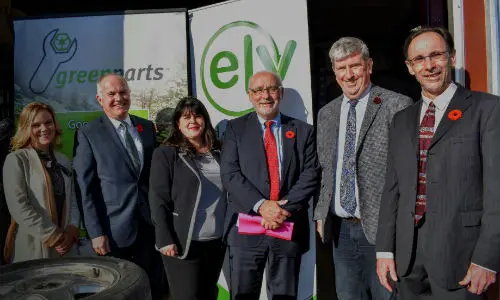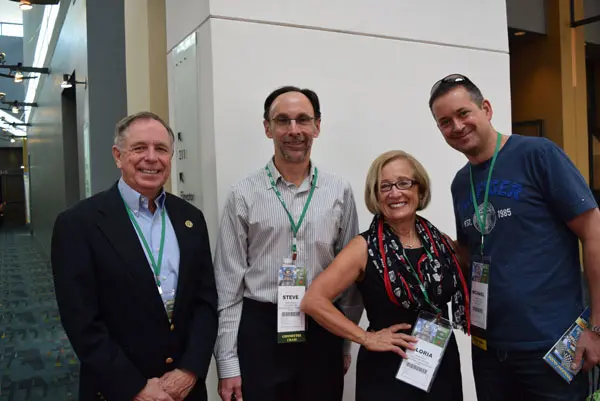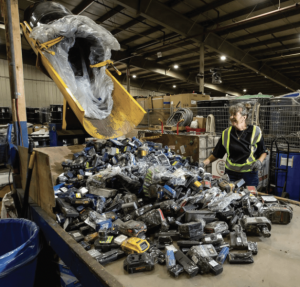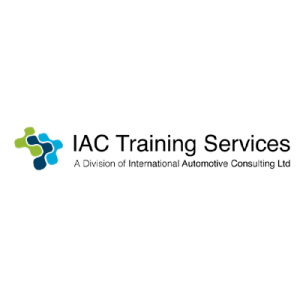Toronto, Ontario — November 14, 2016 — Vehicles are an essential part of Canada’s economy, from the time they’re manufactured until the time they eventually reach their end-of-life. The importance of the last step in the chain was recently acknowledged with the launch of the national End-of-Life Vehicle Sector Council (ELVSC).The ELVSC was officially launched during a special event at Hollywood North Auto Parts in Toronto, Ontario.
The new sector council is a joint effort of the Automotive Recyclers in Canada (ARC), the Canadian Vehicle Manufacturers’ Association (CVMA) and Global Automakers of Canada (GAC).
The event was attended by Glen Murray, Ontario’s Minister of the Environment and Climate Change. Representatives of participating organizations were also on hand, along with staff from the Canadian Automobile Association (CAA) and the Canadian Steel Producers Association (CSPA).
Wally Dingman is the Chairman of ARC and the Ontario Automotive Recyclers Association (OARA). He is also the owner/operator of Caughill Auto Wreckers, located in Niagara-on-the-Lake, Ontario.
“As an industry we have worked hard over the past 10 years to help develop a code of practice for the industry which exemplifies how the auto recycling sector should and can operate, balancing business profitability with the need to protect the environment,” says Dingman. “It was a pleasure working with the Ontario government to extend that code of practice into a meaningful regulation to bring an even playing field to all ELV processors in the Province. Our hope is to make this model available across the country and beyond through education, training and outreach. That’s what the new Sector Council is all about.”
ELVSC will be a critical component of the circular economy for the management of 1.6 million vehicles that reach end-of-life annually in Canada. It will act as a standards development and regulatory compliance body in support of the ELV environmental management standard that will also provide technical clearinghouse services for educating and training ELV processors in best practices for the dismantling, reuse and recycling of ELV and their components.
ELVSC will also support Ontario auto recyclers to meet regulated end-of-life vehicle (ELV) recycling standards adopted by Ontario in March 2016 and other provinces (PEI). These standards will ensure vehicle are dismantled with proper management of hazardous and subject wastes and will require all ELV recyclers in Ontario to prevent discharges of pollutants to the environment.
“Our work with the automakers to bring an effective regulation to Ontario has been very productive. Not only did we bring in a regulation that properly identifies and defines who an auto recycler is, but we began the necessary communication so those auto recyclers are better informed about the vehicles they will need to deal with at end of life,” says Steve Fletcher, Managing Director of ARC. “The Council will help industry meet the compliance obligations of the new regulations in Ontario and help bring this common sense approach to other jurisdictions.”
The Ontario regulated standards are based on the work undertaken by the ARC over the preceding 10 years that resulted in the Canadian Automotive Recycling Environmental Code (CAREC). CAREC was developed in response to demands by Environment and Climate Change Canada for diligent ELV recycling practices for vehicles recovered under the national vehicle scrappage program and those run independently by automakers.
ARC is now launching the ELVSC in recognition that vehicles are becoming increasingly sophisticated using lightweight materials and employing diverse power and drivetrains which require increased technical knowledge, sophistication and environmental diligence on the part of ELV recyclers.
“Establishing a high level of proficiency in the automotive recycling sector is critical to building future commercial partnerships, increasing technical communication between automakers and ELV recyclers and extracting the maximum amount of resources from ELV safely and without discharges to the environment,” says Fletcher.
As a national not-for-profit ELVSC will:
– Maintain a uniform environmental performance standards for Canadian ELV recyclers that will serve as a baseline for jurisdictions that have not developed regulated standards;
– Facilitate the education and training of ELV recyclers with a view to assisting them in achieving regulatory compliance in Canadian jurisdictions with recycling standards (currently Prince Edward Island, Ontario and British Columbia);
– Provide a critical clearinghouse service to facilitate OEM-recycler technical information exchange;
– Collect, collate and report environmental data associated with ELV recycling in Canada;
– Work with industry partners, government and academia to undertake research to support innovation in ELV related resource recovery.
“The Canadian Vehicle Manufacturers’ Association (CVMA) fully supports the work and policy objectives undertaken by ARC to develop the ELV EMS and it commends Ontario for its leadership in moving ahead with the implementation of this new environmental standard. The formation of the ELVSC nationally recognizes the long standing recycling infrastructure that exists in Canada and makes the application of this standard a collaborative venue for ensuring proper and systematic vehicle recycling which protects the environment and results in innovative resource recovery efforts,” says Mark Nantais, President of CVMA.












































































































































